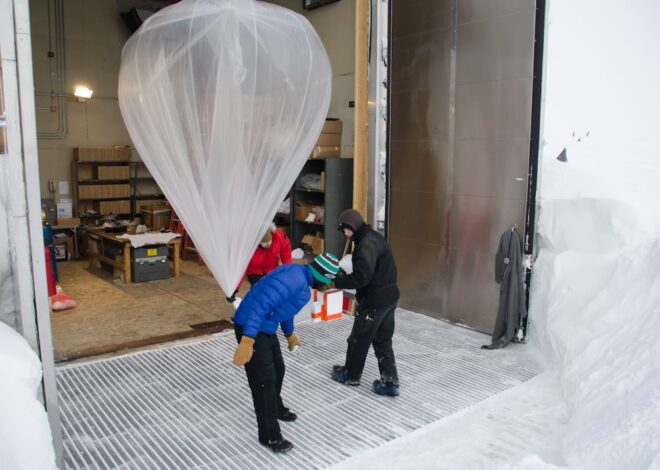
The Rise of Voice Assistants and AI in British Homes
The journey of voice assistants in British homes has been nothing short of remarkable. Initially, the concept of conversing with machines seemed like a distant dream, confined to the realms of science fiction. However, the advent of natural language processing and machine learning has transformed this dream into a tangible reality.
Early iterations of voice recognition technology were rudimentary at best, often struggling to understand accents and dialects prevalent across the UK. The first significant breakthrough came with the introduction of systems like Apple’s Siri in 2011, which marked a pivotal moment in the evolution of voice assistants. Siri’s ability to respond to simple queries and perform basic tasks laid the groundwork for more sophisticated systems that would follow.
As technology advanced, so too did the capabilities of voice assistants. Amazon’s Alexa, launched in 2014, brought a new level of interactivity and functionality to the market. With its ability to integrate with various applications and devices, Alexa quickly became a household name.
The introduction of Google Assistant further intensified competition, offering users a seamless experience across multiple platforms. These developments not only enhanced user engagement but also encouraged manufacturers to embed voice technology into an array of devices, from smart speakers to kitchen appliances. The evolution of voice assistants has thus been characterised by a continuous push towards greater accuracy, versatility, and user-friendliness, making them an integral part of modern British households.
Summary
- Voice assistants have evolved from simple tasks to complex household management tools in British homes.
- AI is revolutionising household tasks by enabling voice assistants to perform a wide range of functions, from managing schedules to controlling smart home devices.
- Voice assistants have a significant impact on daily life in British homes, making tasks more efficient and convenient for users.
- The adoption of voice assistants in British homes is steadily increasing, with more people recognising the benefits of AI-powered technology.
- Voice assistants are being integrated with smart home devices to create a seamless and interconnected home automation system in British households.
How AI is Revolutionising Household Tasks
Smart Appliances: The Future of Cooking
For instance, smart ovens can now learn cooking preferences and adjust temperatures and cooking times accordingly, ensuring that meals are prepared to perfection without constant supervision.
Effortless Cleaning with Robotic Vacuum Cleaners
Similarly, robotic vacuum cleaners equipped with AI can map out living spaces, navigate around furniture, and even adapt their cleaning patterns based on the type of flooring they encounter. This level of automation not only saves time but also reduces the physical strain associated with household chores.
Voice Assistants: The Central Hub of Household Management
Moreover, AI-driven voice assistants have become central to managing these tasks. Users can now issue commands through simple voice prompts, allowing them to multitask effectively while still maintaining control over their home environment. For example, one can instruct a voice assistant to preheat the oven while simultaneously asking it to play music or provide weather updates. This seamless integration of AI into daily routines exemplifies how technology is reshaping our approach to household management.
The ability to automate mundane tasks frees up time for individuals and families, enabling them to focus on more meaningful activities and interactions.
The Impact of Voice Assistants on Daily Life

The presence of voice assistants in British homes has significantly altered daily life, introducing a new layer of convenience and connectivity. One of the most notable impacts is the way these devices facilitate communication and information retrieval. Families can now engage in conversations with their voice assistants to obtain instant answers to questions ranging from trivia to practical advice on cooking or home maintenance.
This immediacy fosters a sense of connectedness not only with technology but also among family members who can share experiences and knowledge through these interactions. Furthermore, voice assistants have proven invaluable for individuals with disabilities or mobility challenges. By enabling hands-free control over various devices and applications, these technologies empower users to manage their environments more independently.
For instance, someone with limited mobility can adjust lighting, control entertainment systems, or even make phone calls without needing to physically interact with devices. This inclusivity highlights the potential for voice assistants to enhance quality of life for diverse populations, making homes more accessible and user-friendly.
The Adoption of Voice Assistants in British Homes
| Year | Percentage of British Homes with Voice Assistants |
|---|---|
| 2017 | 13% |
| 2018 | 20% |
| 2019 | 27% |
| 2020 | 35% |
| 2021 | 42% |
The adoption rate of voice assistants in British households has surged in recent years, reflecting a growing acceptance of this technology as an integral part of everyday life. According to recent surveys, a significant percentage of households now own at least one voice-activated device, with many families opting for multiple units to maximise functionality throughout their homes. This trend is driven by several factors, including increased awareness of the benefits offered by these devices and the decreasing costs associated with smart technology.
Retailers have played a crucial role in promoting voice assistants by bundling them with other smart home products or offering attractive discounts during sales events. Additionally, marketing campaigns have effectively highlighted the convenience and versatility of these devices, appealing to a broad demographic that includes tech-savvy millennials as well as older generations seeking ease of use. As more people experience the advantages firsthand—whether through setting reminders, controlling music playback, or managing home security—the momentum behind voice assistant adoption continues to grow.
The Integration of Voice Assistants with Smart Home Devices
The synergy between voice assistants and smart home devices has created a cohesive ecosystem that enhances user experience and functionality. This integration allows for seamless communication between various devices, enabling users to control everything from lighting and heating to security systems through simple voice commands. For instance, one can instruct their voice assistant to “turn off all lights” or “set the thermostat to 21 degrees,” resulting in immediate action across multiple devices without the need for manual adjustments.
Moreover, this interconnectedness fosters an environment where automation becomes second nature. Users can create routines that align with their daily schedules; for example, a morning routine might involve gradually brightening lights, playing news updates, and brewing coffee—all initiated by a single command. This level of integration not only simplifies daily tasks but also contributes to energy efficiency by allowing users to monitor and control their consumption more effectively.
As manufacturers continue to develop new smart devices compatible with leading voice assistants, the potential for creating personalised home environments expands exponentially.
The Future of Voice Assistants and AI in British Homes

Looking ahead, the future of voice assistants and AI in British homes appears promising and full of potential innovations. As technology continues to evolve, we can expect voice assistants to become even more intuitive and capable of understanding context and nuance in human speech. Advances in natural language processing will likely enable these devices to engage in more complex conversations, allowing for deeper interactions that go beyond simple command execution.
Additionally, as machine learning algorithms improve, voice assistants will become adept at anticipating user needs based on historical data and preferences. For instance, they may proactively suggest recipes based on dietary restrictions or remind users about upcoming appointments without being prompted. This shift towards proactive assistance represents a significant leap forward in how we interact with technology within our homes.
Furthermore, as smart home ecosystems expand, we may see greater interoperability between different brands and devices, creating a more unified experience for users.
Privacy Concerns and Ethical Considerations
Despite the numerous benefits associated with voice assistants, there are significant privacy concerns and ethical considerations that warrant attention. The very nature of these devices—constantly listening for wake words—raises questions about data security and user consent. Instances where recordings are inadvertently captured have sparked debates about surveillance and the extent to which companies monitor user interactions.
In light of these concerns, many users are becoming increasingly vigilant about their privacy settings and data sharing practices. Moreover, ethical considerations extend beyond individual privacy; they encompass broader societal implications as well. The potential for bias in AI algorithms poses risks that could perpetuate existing inequalities or lead to discriminatory practices in areas such as hiring or law enforcement.
As voice assistants become more embedded in daily life, it is crucial for developers and policymakers to address these issues proactively. Establishing transparent data usage policies and ensuring that AI systems are designed with fairness in mind will be essential steps toward fostering trust among users.
The Role of Voice Assistants in Shaping the Future of Home Automation
Voice assistants are poised to play a pivotal role in shaping the future landscape of home automation. As they become increasingly sophisticated and integrated into various aspects of daily life, these technologies will likely drive further innovation within the smart home sector. The ability to control an array of devices through natural language commands not only enhances user experience but also encourages the development of new applications that leverage this technology.
In addition to enhancing convenience, voice assistants will contribute significantly to energy management within homes. By providing real-time feedback on energy consumption patterns and suggesting optimisations based on user behaviour, these systems can help households reduce their carbon footprint while saving on utility bills. As sustainability becomes an increasingly pressing concern for many families, the role of voice assistants in promoting eco-friendly practices will be crucial.
As we move forward into an era defined by rapid technological advancement, it is clear that voice assistants will remain at the forefront of home automation trends in British households. Their ability to adapt and evolve alongside user needs will ensure that they continue to be valuable companions in managing modern living spaces efficiently and effectively.
FAQs
What are voice assistants and AI?
Voice assistants are digital assistants that use speech recognition technology to understand and respond to voice commands. AI, or artificial intelligence, refers to the ability of machines to perform tasks that typically require human intelligence, such as understanding language and making decisions.
How do voice assistants work?
Voice assistants use natural language processing and machine learning algorithms to understand and interpret spoken commands. They then use this information to perform tasks such as setting reminders, playing music, or providing information.
What are some popular voice assistants?
Some popular voice assistants include Amazon’s Alexa, Apple’s Siri, Google Assistant, and Microsoft’s Cortana. These voice assistants are integrated into various devices such as smartphones, smart speakers, and smart home devices.
What are the benefits of using voice assistants and AI?
Voice assistants and AI can provide convenience by allowing users to perform tasks hands-free, such as setting reminders, controlling smart home devices, and getting information. They can also improve accessibility for people with disabilities and provide personalised experiences based on user preferences.
What are some concerns about voice assistants and AI?
Some concerns about voice assistants and AI include privacy and security issues, as these technologies often collect and store personal data. There are also concerns about the potential for bias in AI algorithms and the impact of automation on jobs.


